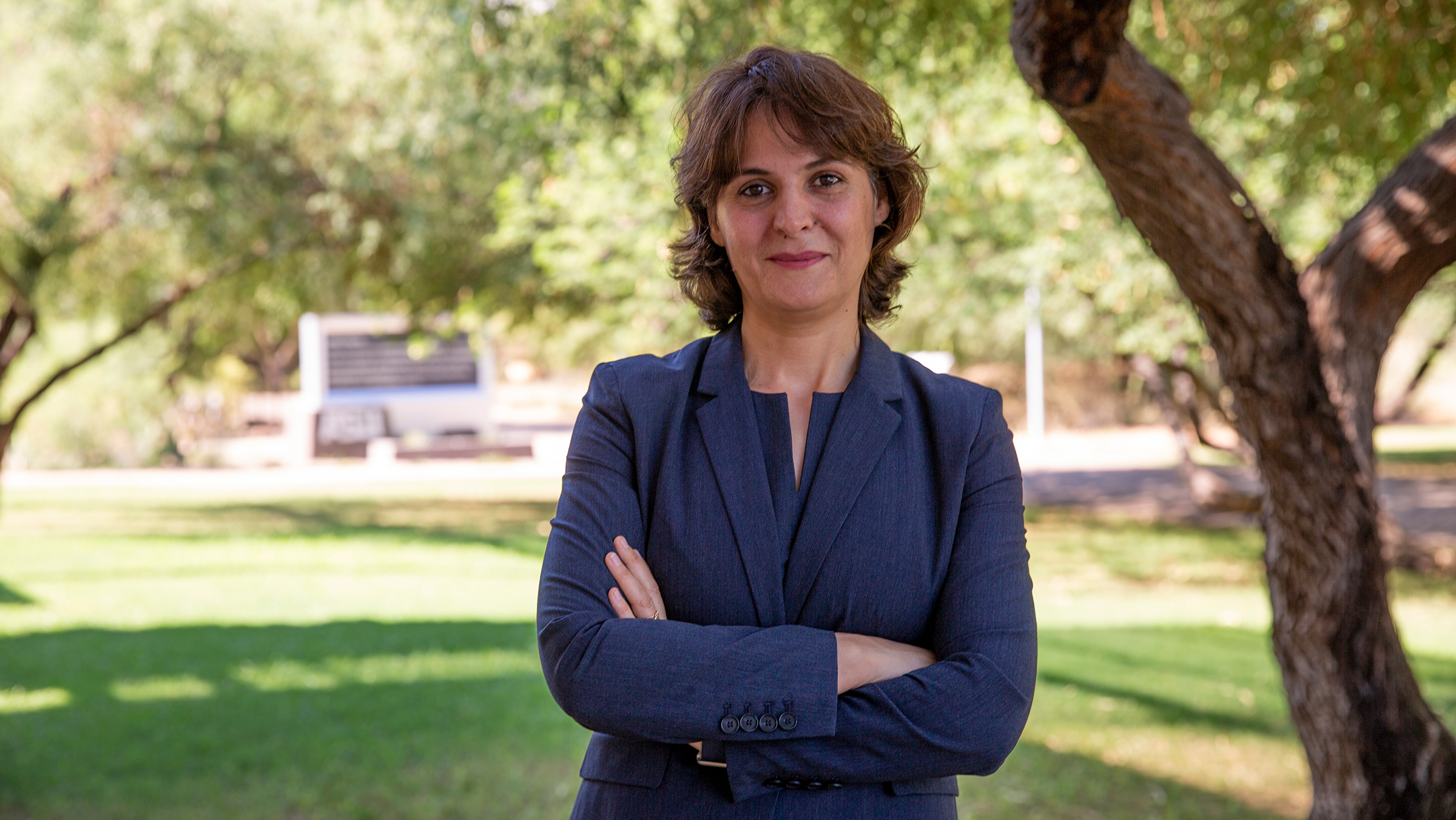
Mechanical engineering achievements earn Ladani ASME Fellow status

Above: Contributions to the engineering of materials and manufacturing processes, and to the education of her students, has earned Fulton Schools professor Leila Ladani high recognition from her professional peers. Photographer: Erika Gronek/ASU
Being named a Fellow of the American Society of Mechanical Engineers, or ASME, is a distinction bestowed on only 3% of the organization’s more than 100,000 members. Leila Ladani, a professor of mechanical and aerospace engineering in the Ira A. Fulton School of Engineering at Arizona State University, is now in that select group.
The honor granted by the ASME Committee of Past Presidents recognizes Ladani’s achievements as an educator and researcher in mechanical engineering, as well as her contributions to ASME.
Nomination for Fellow status requires more than 10 years of membership in ASME and an equally long record of support for its mission and goals.
Ladani joined the ASME in 2005 and has since received the ASME Electronic and Photonic Packaging Division’s Women In Engineering Award and has had key roles on several committees, including serving as chair of the ASME Materials Division, chair of the Subdivision of Electronic Materials and co-chair of the Electronic and Photonic Packaging Subdivision of Emerging Technologies.
Ladani teaches in the School for Engineering of Matter, Transport and Energy, one of the six Fulton Schools, and previously directed The Polytechnic School. She now directs ASU’s Manufacturing Innovation Center, or MAGIC, which focuses on solving manufacturing industry challenges, generating and developing ideas for advances in manufacturing and materials technologies, and training students to become industry leaders, researchers, innovators and entrepreneurs.
She has been working in the fields of mechanical engineering and manufacturing for more than 20 years and has earned international recognition for her contributions to advances in manufacturing. In addition, she edits the highly rated ELSEVIER research journal, Materials Science and Engineering:A.
Becoming an ASME Fellow is especially important to her, Ladani says, “because we don’t have many female engineers, especially in mechanical engineering. As a woman and a Fellow, you can inspire many young female engineers and students who are working to find a path in this field.”
Ladani is already seeing the productive influence of her most recent recognition.
“It opens opportunities for me to contribute more effectively,” she says. “This is an affirmation of your expertise and the importance of your research and it provides a broader platform for collaboration and impact.”
Ladani’s recently published book, Additive Manufacturing of Metals: Materials, Processes, Tests, and Standards, explores the potential of innovations in additive manufacturing technology to significantly change the operations of manufacturing industries — enabling devices and systems to be designed and built more efficiently while saving energy in the process, among other advantages.
Ladani has been contributing to that progress — most recently through her work in ASU’s Additive Manufacturing Center — and helping to develop the next generation of professionals in the field through her teaching, both in the classroom and the research lab.
She and her team aspire to make breakthroughs in the development of advanced manufacturing processes to make novel materials designed specifically for precise high-tech applications, including microelectronics, aerospace and biomedical applications.
Ladani has plans to add national research projects to her pursuits, which would provide opportunities for fellow ASU faculty members and students to collaborate with leading engineers and scientists at other prominent institutions.
Longtime colleague and mentor Professor Christine E. Hailey, dean of the College of Science and Engineering at Texas State University, lauds Ladani for the “ingenuity and drive” she has shown throughout her career.
Hailey says Ladani came to ASU primarily because of its culture, “which promotes innovation and access to education for all,” bringing with her the same energy, determination and resilience she has always shown in pursuing her teaching and research goals.
With her long and extensive list of contributions and accomplishments as an educator and a leader in mechanics and manufacturing, Ladani can be expected to build on her record of success, says fellow mechanical engineer Amir Faghri.
Faghri is a Distinguished Professor of Engineering and Distinguished Dean Emeritus of Engineering at the University of Connecticut, where Ladani spent three years on the faculty.
He describes Ladani as “an inspirer, an outstanding teacher and mentor with a deep intellect and an unwavering commitment to her work.”
He notes in particular that her work in modeling and simulation of additive manufacturing processes has been instrumental in adapting this new technology for a number of major companies.
Ladani is one of more than 3,000 ASME members who have attained Fellow status since the distinction was established in 1961, joining a list that includes Fulton Schools Professors Aditi Chattopadhyay, Marc Mignolet, Hanqing Jiang, T. Agami Reddy and Thomas Sugar, as well as Emeritus Professors Joseph Davidson, Harold Nelson, Ramendra Roy, Jami Shah and Ronald So.



































